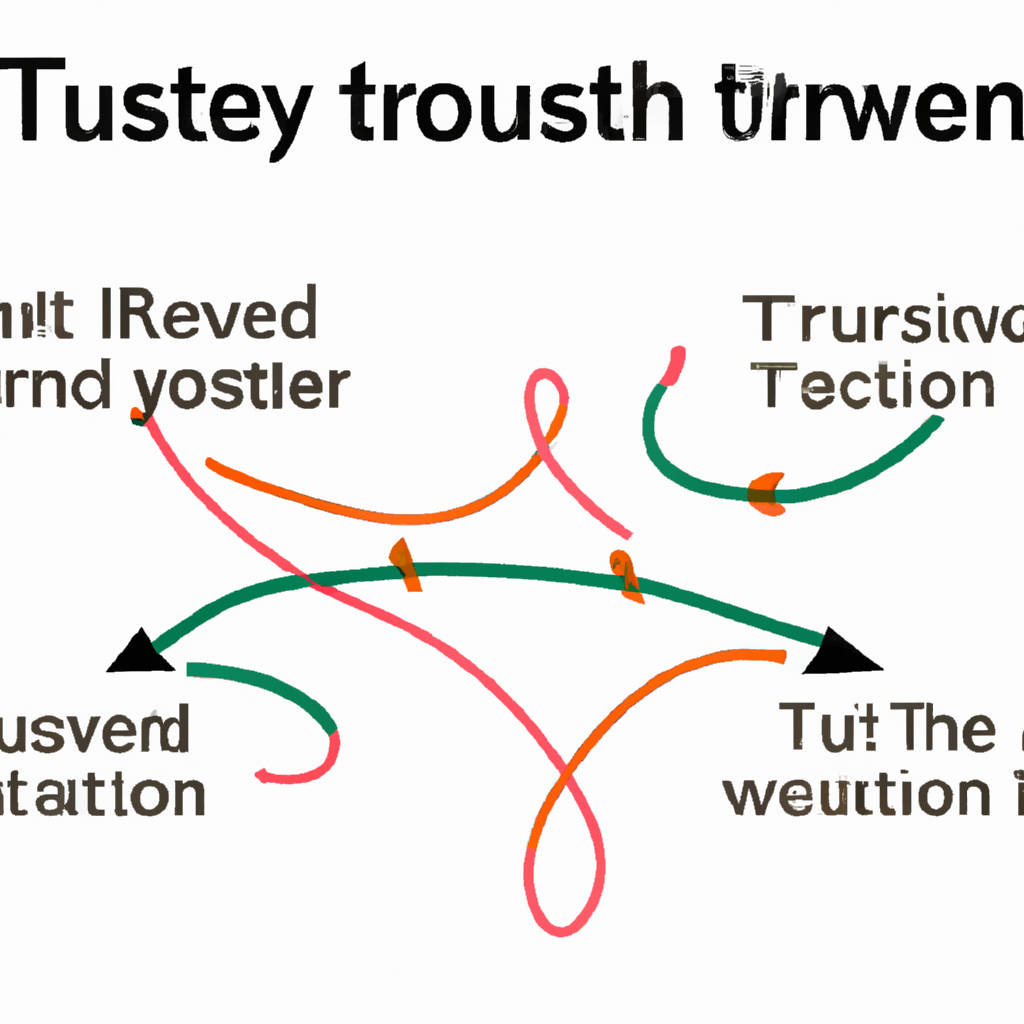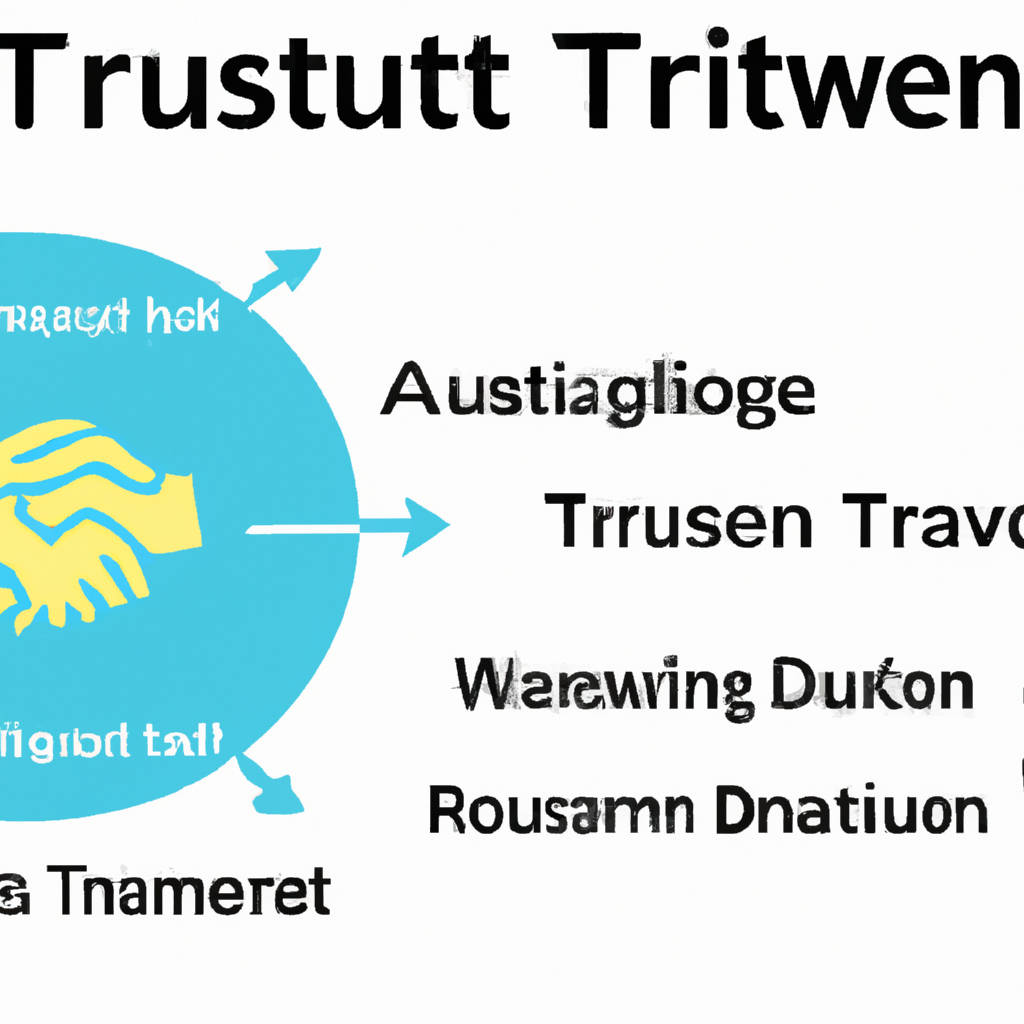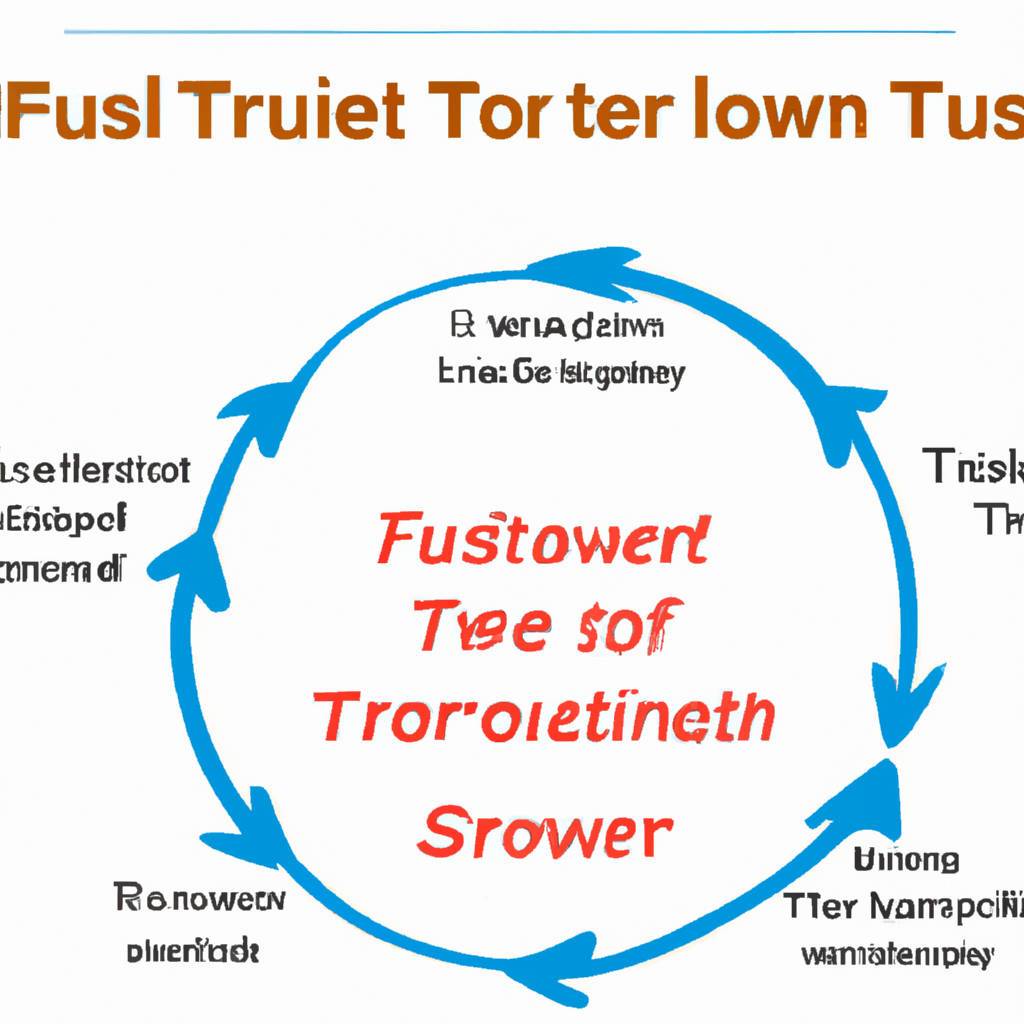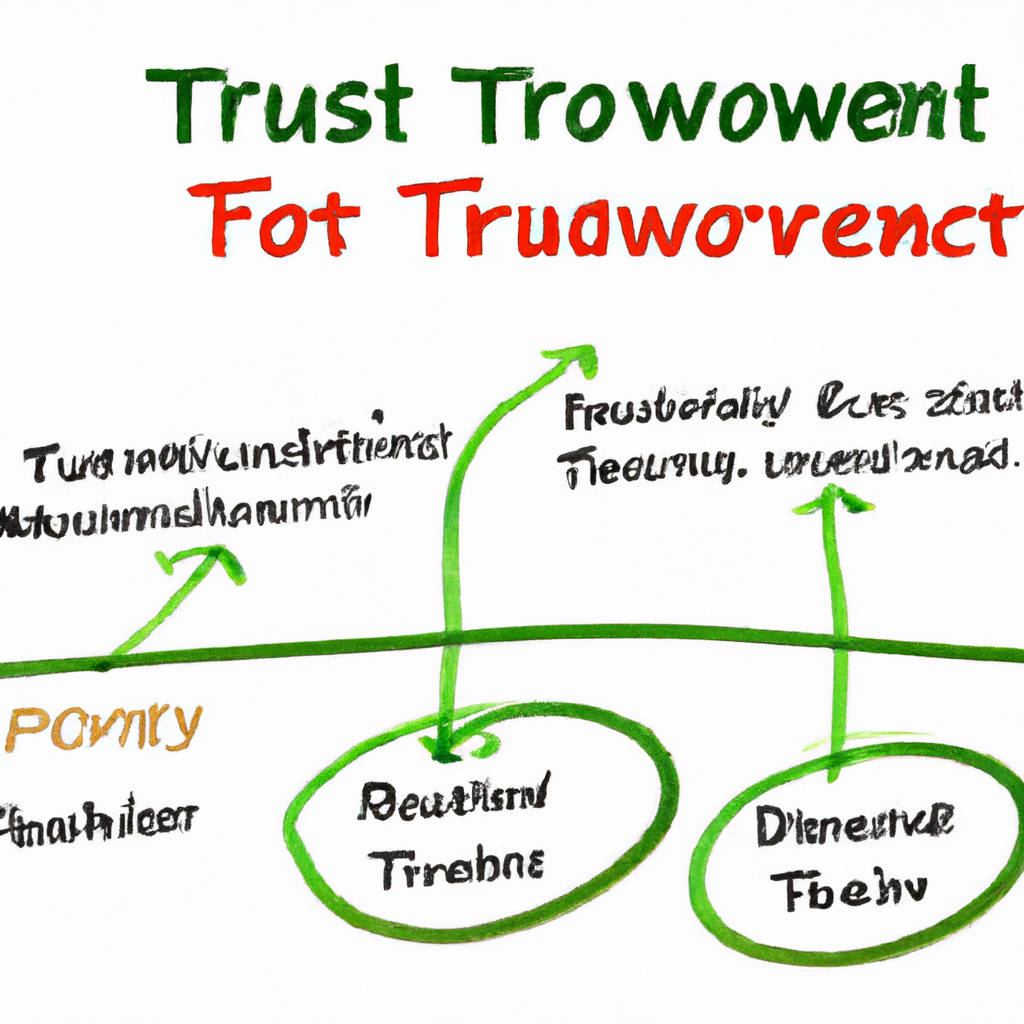Understanding Trust Flow variations is crucial for website owners and SEO professionals to improve their online presence and rankings. Trust Flow is a metric developed by Majestic that measures the quality and trustworthiness of a website based on the number and quality of backlinks pointing to it. Trust Flow variations can occur due to a variety of factors, such as changes in the quality of backlinks, updates to search engine algorithms, or even the actions of competitors. By monitoring these variations and understanding the reasons behind them, website owners can make informed decisions on how to improve their link profile and overall trustworthiness. This can lead to higher rankings in search engine results pages and ultimately more organic traffic to their website.
One common reason for Trust Flow variations is the acquisition of low-quality backlinks. If a website suddenly receives a large number of spammy or irrelevant backlinks, its Trust Flow score can decrease significantly. This is because search engines like Google penalize websites that engage in link schemes or other manipulative tactics to artificially inflate their rankings. To avoid this, website owners should regularly audit their backlink profile and disavow any toxic links that could be harming their Trust Flow score. By focusing on acquiring high-quality, relevant backlinks from authoritative websites, website owners can help improve their Trust Flow score over time.
Another factor that can influence Trust Flow variations is changes to search engine algorithms. Search engines regularly update their algorithms to improve the quality of search results and combat spam. These updates can have a significant impact on a website’s Trust Flow score, as they may prioritize certain types of backlinks over others. For example, Google’s Penguin algorithm update targeted websites with unnatural link profiles, causing many to see a decrease in Trust Flow. To adapt to these changes, website owners should stay informed about algorithm updates and adjust their link building strategies accordingly.
Competitors can also play a role in Trust Flow variations. If a competitor engages in negative SEO tactics, such as building spammy backlinks to a rival website, it can harm the Trust Flow score of the targeted site. This can be a challenging situation to address, as website owners have little control over the actions of their competitors. However, by continuing to focus on building high-quality backlinks and creating valuable content, website owners can mitigate the impact of negative SEO and maintain a strong Trust Flow score.
In conclusion, understanding Trust Flow variations is essential for website owners and SEO professionals looking to improve their online presence. By monitoring changes in Trust Flow, identifying the factors influencing these variations, and taking proactive steps to address them, website owners can enhance their trustworthiness in the eyes of search engines and ultimately improve their search rankings. By prioritizing high-quality backlinks, staying informed about algorithm updates, and staying vigilant against negative SEO tactics, website owners can build a strong foundation for long-term success in the competitive world of online marketing.

Trust Flow Explained
Trust Flow is a term used in the world of search engine optimization to measure the credibility and quality of a website. It is a metric developed by Majestic SEO that evaluates the trustworthiness of a website based on the quality of backlinks pointing to it. Essentially, Trust Flow is a way to determine how reliable and authoritative a website is in the eyes of search engines. The higher the Trust Flow score, the more likely it is that the website will rank well in search engine results. Trust Flow takes into account factors such as the number of quality backlinks, the relevancy of those links, and the authority of the websites linking to the site in question. It is important for website owners to focus on building high-quality, relevant backlinks in order to improve their Trust Flow score and ultimately improve their search engine rankings. Trust Flow is just one of many factors that search engines use to determine the credibility and authority of a website, but it is a crucial one for those looking to improve their online presence and visibility. By understanding Trust Flow and how it works, website owners can take the necessary steps to enhance their website’s reputation and improve their chances of ranking higher in search engine results.
In-depth Guide to Trust Flow
Trust Flow is a metric that measures the quality of backlinks pointing to a website. It is a score developed by Majestic SEO that indicates the credibility and trustworthiness of a website based on the quality of its inbound links. The higher the Trust Flow score, the more trustworthy and authoritative the website is considered to be. Trust Flow is an important factor in search engine optimization (SEO) as it helps search engines determine the credibility of a website and its content. It is important to note that Trust Flow is not the only metric to consider when evaluating the quality of a website’s backlinks. It is best used in conjunction with other SEO metrics such as Citation Flow, Domain Authority, and Page Authority to get a comprehensive understanding of a website’s overall link profile. By analyzing Trust Flow, website owners and SEO professionals can identify high-quality backlinks that can help improve their website’s search engine rankings and overall online visibility. Additionally, monitoring Trust Flow can help identify and disavow low-quality or spammy backlinks that may be harming a website’s credibility and search engine rankings. Overall, understanding Trust Flow is essential for any website owner or SEO professional looking to improve their website’s online presence and authority.

Defining Trust Flow
Trust Flow is a metric used in search engine optimization to measure the quality of a website based on the number of trustworthy and authoritative backlinks pointing to it. Essentially, Trust Flow is a way to determine how reliable and reputable a website is in the eyes of search engines. The more high-quality backlinks a website has, the higher its Trust Flow score will be. This metric is important because search engines use it to determine the credibility and authority of a website, which can impact its ranking in search results. Websites with a high Trust Flow are more likely to be seen as trustworthy by both search engines and users, leading to increased visibility and traffic. It is important for website owners and SEO professionals to understand Trust Flow and work towards improving it by building relationships with reputable websites and earning quality backlinks. By focusing on building a strong Trust Flow, website owners can improve their online presence and attract more organic traffic.
Significance of Trust Flow
Trust Flow is a metric that is used to determine the quality of a website in terms of its credibility and reliability. It measures the level of trustworthiness and authority that a website has based on the quality of its backlinks. The higher the Trust Flow score, the more trustworthy and reliable the website is considered to be. This metric is important for businesses and website owners because it helps them understand how their website is perceived by search engines and users. A high Trust Flow score can result in better search engine rankings, increased traffic, and more opportunities for partnerships and collaborations. On the other hand, a low Trust Flow score can indicate that a website may not be seen as reputable or trustworthy, which can negatively impact its online visibility and credibility. Therefore, monitoring and improving Trust Flow is essential for maintaining a positive online presence and building a strong reputation in the digital world. Trust Flow is not just a number, but a reflection of the trust and authority that a website has earned over time, making it a valuable indicator of its overall quality and value to users. By focusing on building quality backlinks and maintaining a high level of trustworthiness, website owners can improve their Trust Flow score and establish themselves as reliable sources of information and services in their respective industries.

Calculating Trust Flow with Majestic
Calculating Trust Flow with Majestic is an essential tool for website owners looking to assess the quality and reliability of their backlink profile. Trust Flow is a metric developed by Majestic that measures the credibility of a website based on the quality of its backlinks. By analyzing the trustworthiness of the websites linking to a particular site, Trust Flow provides valuable insights into the overall authority and reputation of the domain. This information can be used to identify potential spammy or low-quality backlinks that may be harming a site’s search engine rankings. By regularly monitoring Trust Flow metrics, website owners can make informed decisions about which backlinks to disavow or remove in order to improve their site’s overall trustworthiness and authority in the eyes of search engines. Additionally, Trust Flow can help identify opportunities for building relationships with high-quality websites that can positively impact a site’s SEO performance. Overall, understanding and calculating Trust Flow with Majestic is a crucial step in optimizing a website’s backlink profile and improving its search engine visibility.
Optimal Trust Flow Score
Trust Flow Score is a metric used by search engine optimization professionals to evaluate the credibility and reliability of a website. The higher the Trust Flow Score, the more trustworthy and authoritative the website is considered to be by search engines like Google. A high Trust Flow Score indicates that the website is likely to provide valuable and relevant information to users, making it more likely to rank higher in search engine results. Achieving an optimal Trust Flow Score requires a combination of factors, including high-quality content, natural backlinks from reputable websites, and a strong social media presence. By focusing on building trust and credibility with both users and search engines, website owners can improve their Trust Flow Score and increase their visibility and success online. Ultimately, having a high Trust Flow Score can lead to increased organic traffic, higher conversion rates, and improved online reputation. It is essential for website owners to monitor and maintain their Trust Flow Score regularly to ensure that they are maximizing their online presence and staying competitive in the ever-evolving digital landscape. Trust Flow Score is a key metric that can help website owners understand how their website is perceived by search engines and users, and can guide them in making informed decisions to improve their online visibility and credibility.

Trust Flow’s Impact on SEO
Trust Flow is a metric used in search engine optimization (SEO) to measure the credibility and authority of a website. It is based on the quality and quantity of backlinks that point to a website. The higher the Trust Flow score, the more trustworthy and reputable a website is considered to be by search engines like Google. This can have a significant impact on a website’s SEO performance, as websites with higher Trust Flow scores are more likely to rank higher in search engine results pages. This is because search engines view websites with high Trust Flow scores as more reliable sources of information and are more likely to prioritize them in search results. Ultimately, having a high Trust Flow score can help improve a website’s visibility, traffic, and overall success in the digital landscape. It is important for website owners and SEO professionals to focus on building quality backlinks from reputable sources in order to improve their Trust Flow score and enhance their SEO performance. By prioritizing trust and credibility in their link-building efforts, website owners can position themselves as authoritative voices in their industry and attract more organic traffic to their website. Trust Flow’s impact on SEO is undeniable, and understanding and utilizing this metric effectively can be key to achieving success in the competitive online marketplace.
Wrapping Up
As we come to the end of this discussion, it is important to consider the implications of our actions and decisions. It is crucial to remember that every choice we make has consequences, whether they are positive or negative. Wrapping up requires us to reflect on our behavior and the impact it has on those around us. It is a time to take stock of our actions and consider how we can improve in the future. It is also a time to acknowledge any mistakes we may have made and learn from them. Wrapping up is not just about bringing something to a close, but also about setting the stage for what comes next. It is an opportunity to evaluate what we have learned and how we can apply that knowledge moving forward. Ultimately, wrapping up is about taking responsibility for our actions and striving to be better individuals. It is a time for introspection and growth, a chance to make amends and move forward with a renewed sense of purpose. So as we wrap up this discussion, let us remember to always strive to be the best versions of ourselves and to make choices that align with our values and beliefs. Let us commit to being mindful of our actions and their impact on others, and to always strive for personal and collective growth.


